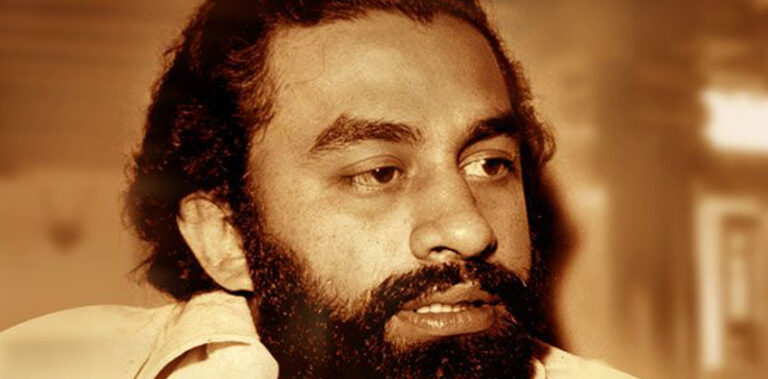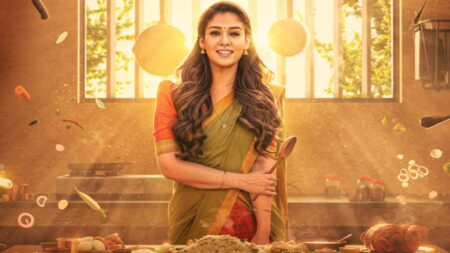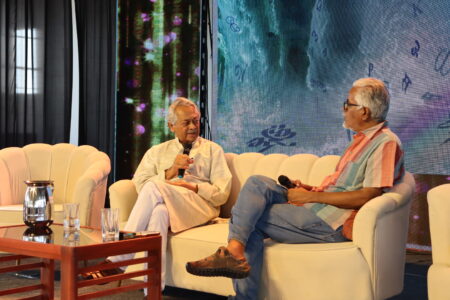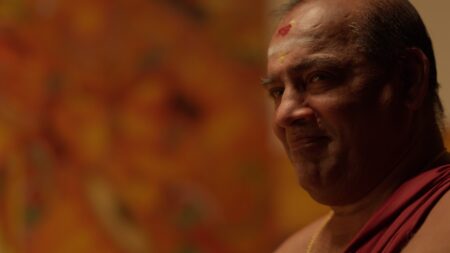Though Padmarajan’s screenplays ruffled many feathers in the 1970s, his fans are still on the rise.
Beginning his career as a screenwriter for hire, a versatile Padmarajan forged a special bond with film director Bharathan before debuting as director.
In addition to his screenplays, Padmarajan was a prolific writer with many novels and short stories to his credit before donning the director’s cap.
He was widely lauded for his variety and his ability to straddle genres. No two Padmarajan movies are the same.
Well, to an extent they were different, but still had common threads. He explored sex at a time when the word didn’t exist in the public dictionary. Padmarajan brought a realistic aesthetics, without falling into the art movie trappings. He championed the ordinary man in extraordinary situations.
His movies had unexpected endings, but never one that was there purely for shock value.
Padmarajan’s was a life cut short cruelly. He passed away at the ridiculously young age of 45. Even then, his body of work stands out like a beacon amongst average stories and safe screenplays. Without dwelling on what might have been, I will celebrate what was.
Film: Prayanam (The Voyage) 1975
Cast: Lakshmi, Mohan Sharma, Kottarakkara Sreedharan Nair and Kaviyoor Ponnamma
Director: Bharathan
Few combinations in Malayalam cinema were as close to perfection as the Bharathan- Padmarajan duo. It feels just right that the two made their debut together in this movie.
It begins with a Brahmin wedding. Savithrikutty (Lakshmi), the daughter of a poor Namboothiri, is being married off to an elderly temple priest (Kottarakkara), a widower with a young son.
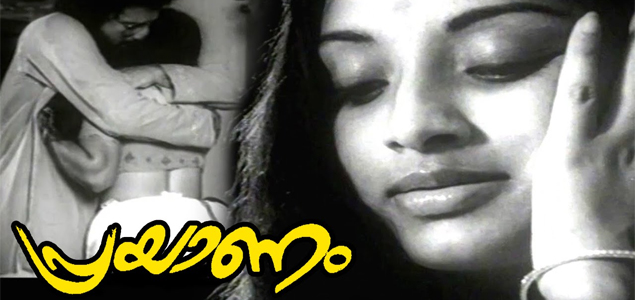
After the initial few days, the age difference raises its head and the priest starts to spend more time in the temple. A young man, Aravindan (Sharma) comes to a nearby house and sparks fly even in the most traditional of places. It was only a matter of time before the priest discovers the affair, and he reacts in expected ways. But that is only the first part.
Kottarakkara showcases an astounding range with very few words. His metamorphosis from a coy groom about to enter a physical relationship after a long time to a weary old man, content with his lot, to his righteous indignation at what he perceives as an unforgivable sin, are understated, yet powerful.
The movie, however, belongs to Lakshmi. Starting off as a mischievous young girl who is bewildered by her marriage, she smoothly moves into a young woman thirsting for passion in her life. She brilliantly emotes both the sadness at realising her folly and the helplessness when her mind and body won’t let her get out of it. The way she lets herself go in the love scenes, and the vulnerability she brings to the screen are stunning.
Padmarajan’s screenplay deftly sidesteps the obvious, all the way to the ending. Bharathan, the director, shows great skill and sensitivity in capturing beauty. The surprising cinematography credit of Balu Mahendra led to the delightful discovery that the Tamil auteur started his career as a cinematographer in Malayalam movies.
Prayanam begins as a questioning of traditional practices and the relevance of religion. It soon moves into the affairs of the heart and the body that houses it. It will be called revolutionary even this day.
I wonder how many feathers it ruffled in 1975.
Film: Itha Ivide Vare (Just Ahead) 1977
Cast: M.G Soman, Madhu, Jayabharathi, Vidhubala, Kaviyoor Ponnamma, Bahadhur, K.P Ummer, Sharadha, Adoor Basi and Jayan
Director: I.V. Sasi
Vishwanathan (Soman), a young man with a troubled past, comes to a small village in the backwaters. Claiming to be an artist who liked the location, he manages to get an abandoned house – Valiparambil Veedu – for rent.
Through flashbacks we find that the house was once his own and something violent had happened there during his childhood.
Vishwanathan has come back home. He has also come back for revenge.
While the hero coming back to his roots after years is a familiar trope in Malayalam movies, this is probably one of the earliest and most famous.
Padmarajan’s screenplay does not take the easy road. In fact, it is downright frustrating, at times. The hero wants revenge, but he does not know exactly how. The violence of the past had its genesis in sex, so his revenge also needed that crutch. But would he be able to do that?
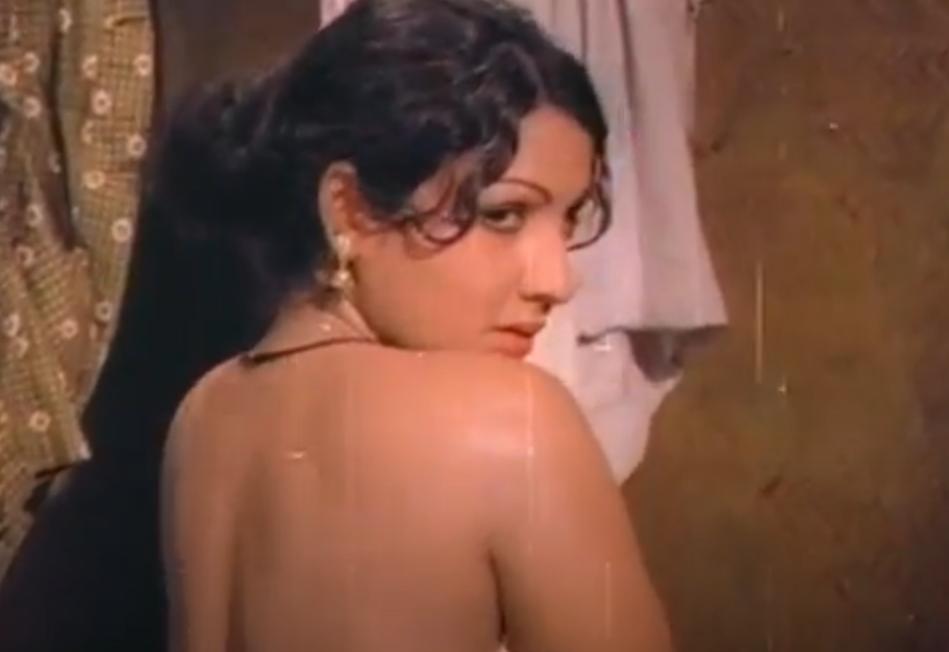
From a distance, Vishwanathan is the hero and Paili (Madhu) is the villain. But even in those days Padmarajan refused to pigeon-hole himself. During the course of the movie you realise how the two characters become closer in behaviour until one cannot differentiate between a hero and a villian.
I V Sasi, the prolific director of the 70s and 80s, had made a name for himself as one who knew the people’s pulse. I am not his biggest fan, but then I am in the minority.
Sasi couldn’t bring himself to cast non-familiar faces, even in minor roles. His movies were multi-starrers before the term existed.
I remember a lot of his movie posters just being mug shots of were all acting in them and that itself would drive people in droves to theatres. Here there is also a huge call sheet that included Adoor Bhasi and Bahadur, Jayan, K. P Ummer, Jayabharathi, Vidhubala and Meena. The versatile Sharada is unfortunately confined to a tiny role.
Among the performances, the standouts are Madhu, in a rare negative role, and Jayabharathi who has the least theatrical of roles.
The internet says that this is the movie that cemented Soman’s leading man status, but the role is not anything extraordinary.
My main issue with Sasi is he tends to dumb down the movies to the lowest denominator. He has done that to some of M T Vasudevan Nair’s scripts. But strangely enough he seems to have left in most of Padmarajan’s ground-breaking twists.
This is still not vintage Padmarajan, who closes all plot holes. But we can see a young writer who does not want to exist in the status quo. One who has stories to tell and clichés to upend. Itha Ivide Vare is a fascinating early milestone.
Film: Rathinirvedam (Adolescent Desire) 1978
Cast: Jayabharathi, Krishnachandran, KPAC Lalitha, Kaviyoor Ponnamma, M.G Soman, Adoor Basi, Bahadur, and Meena
Director:Bharathan
We have seen that one of Padmarajan’s themes was sex. At a time when the only discussions of sex in movies were via skin flicks, Padmarajan brought it into the mainstream, but never in a voyeuristic way. He wanted his viewers to have a dialogue about sex. And then you have Bharathan, the best Indian director of sensuality on screen. At least, according to me.
After Prayanam, audiences were eagerly awaiting the next joint venture by the two friends. They surely couldn’t be disappointed.
Well, Rathinirvedham came like a tsunami and swept aside the Malayali’s innocence, so to say. I remember asking about the movie when I was a kid and getting stoic silence as an answer. We just won’t talk about it. After all, how could a movie with an ‘Adults Only’ rating be anything good?
Sex didn’t exist in the 70s in Kerala. Marriages were arranged by the elders, the husband would be a few years elder to the wife, and God would give the couple the first kid within a year. Anything that did not follow this dictum was blasphemy.
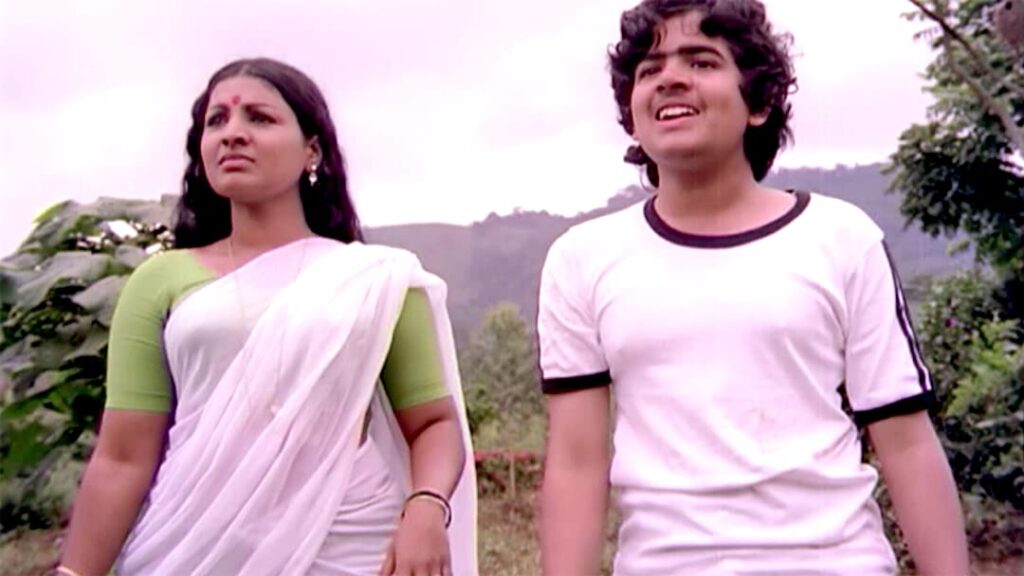
Into that sea of sin, waded the Bharathan- Padmarajan duo,taking us along.
Pappu (Krishnachandran) is a young boy who completed his 10thgrade and was getting ready for college. This would put him in the 15-16 age group.
He stayed with his mother (Ponnamma), aunt (Lalitha), siblings and cousins. His days were mostly spent cycling to the village library. Their neighbours were a retired armyman (Bhasi), his widowed sister (Meena) and her daughter Rathi (Jayabharathi), who is in her twenties. The families are close and all the kids, including Pappu, adored Rathi.
Pappu was entering adolescence. While his time was mostly with his cousins, he realises that he is no longer a kid. A chance remark by one of the other youngsters makes him look at Rathi with very different eyes. It took Rathi a while to realise that he was not the innocent young kid that he was. But, by then, things started taking a turn for the worse.
Pappu’s infatuation was no longer secret. Things would be sorted out soon when Pappu would go to college and stay in the hostel. But no one had counted on Rathi’s feelings.
Krishnachandran makes an assured debut in a very complex role. KPAC Lalitha, who was married to Bharathan, and Kaviyoor Ponnamma make the most of their limited opportunities. The child artistes are excellent. Soman, Bhasi and Bahadur have small roles.
Ultimately, Rathinirvedam is Rathi’s movie. Jayabharathi carries the film in a fearless performance. Beginning as fun-loving girl, moving to a smouldering siren and then as a vulnerable woman caught between her conflicting feelings, Jayabharathi runs the gamut of emotions. She may have been typecast as the sexy heroine not afraid to show skin in Malayalam cinema of the 70s and the 80s, but Rathinirvedam will probably be her crowning glory.
Shot in the picturesque hills of Nelliampathi by Malayalam cinema’s best-known cinematographer Ramachandra Babu, Rathinirvedam was probably what started the phrase ‘Bharathan Touch’, which referred to Bharathan’s unique style of having gorgeous visuals support the story he was saying.
It may have stirred a hornet’s nest during its release, and more than half of its audience were just there to see Jayabharathi. But, make no mistake, Rathinirvedam is a bona fide landmark in Malayalam movies. It has stunningly stood the test of time.
In the West it may have been just another coming-of-age movie, but in the milieu it came out, there was nothing like it. Forty years later, it still feels like a minor miracle.

